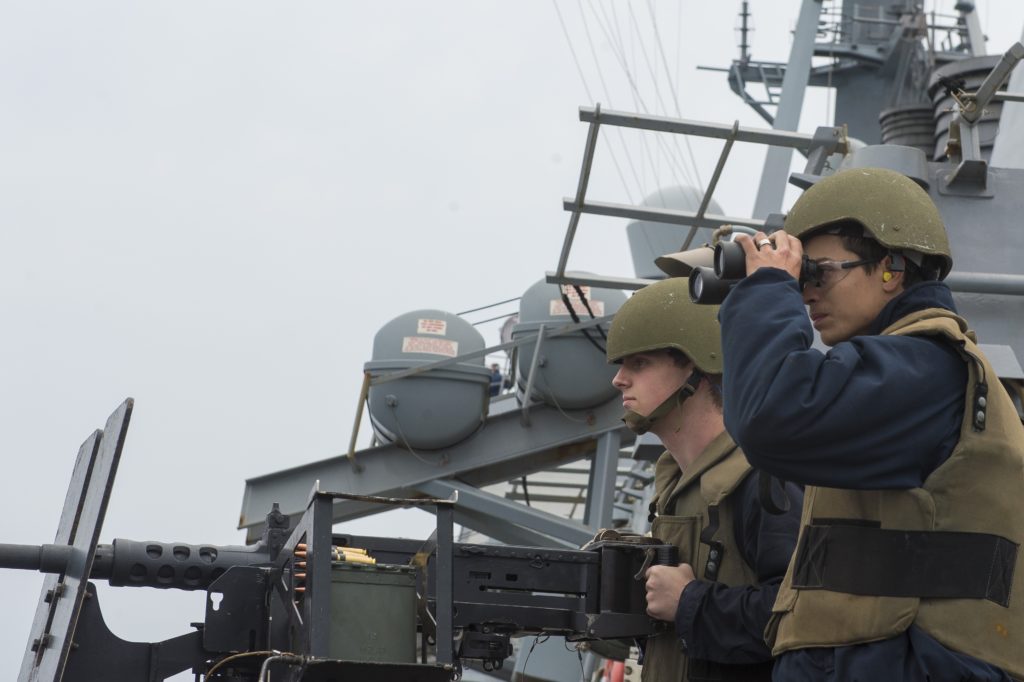The Peninsula
Why a Hard Embargo of North Korea is Impractical

By Troy Stangarone
One question confronting the United States, South Korea, and the rest of the international community is how to convince North Korea to return to denuclearization talks. Having tried varying degrees of dialogue, negotiations, and sanctions, the options available entail a refinement of the current sanctions approach, the acceptance of North Korea as a nuclear state, or considering more aggressive actions. One option that has been put forward is a hard embargo where all shipping into and out of North Korea would be blocked. That option is impractical.
While North Korea represents a growing threat to the United States and its allies, this is not the 1960s and not the Cuban missile crisis. Unlike in the case of Cuba, North Korea is not an island and couldn’t be surrounded by U.S. and allied forces. More to the point, Cuba’s proximity to the United States made a blockade more practical given the proximity of the United States navy to its home port and the lack of another major fleet nearby that could easily come to Cuba’s aide.
In the case of North Korea, both China and Russia would have to actively support a move to cut off all shipments into and out of North Korea for any effort to impose a blockade to be successful. Even if Moscow and Beijing chose to take passive approaches, vessels hoping to enter and leave North Korean waters could simply sail through Russian or Chinese territorial waters. While ships departing North Korea might be seized once they headed for international waters, it would be impractical to stop every ship approaching Chinese or Russian waters.
Even if China and Russia were to countenance efforts by the United States and others to establish a naval blockade around North Korea, they would still need to be active participants in the hard embargo. Otherwise, China or Russia could simply supply North Korea via land routes to maintain the regime.
In light of China’s claims in the South China Sea and it refusal to recognize the Court of Permanent Arbitration’s ruling against it, it seems unlikely that China would allow a U.S.-enforced blockade near its territorial waters. China also has negative experience with naval blockades. It remembers the Chinese Nationalists’ unsuccessful blockade of China’s ports that lasted from 1949 to 1958, the effect of which was to increase China’s trade with the Soviet Union. Of even more relevance, the U.S. Navy, Royal Navy, and Royal Australian Navy imposed a naval blockade on North Korea from 1950-1953 which was thwarted by China and Russia sending goods into North Korea across their land borders – not an encouraging precedent.
Finally, it is worth bearing in mind that a major artery of trade between China and the United States is the container ship traffic that sails through the Yellow Sea, close to the Korean coastline. Any naval engagements, including those that might be initiated by North Korea, that might threaten that sea lane would have dramatic economic consequences for both China and the United States.
Since any effort to completely cut off North Korea could precipitate either the North Korean regime’s collapse or encourage it to begin a new conflict on the Korean peninsula, China would be reluctant to agree to such a measure. It would undermine the stability that Beijing seeks on the peninsula and potentially reshape the strategic situation on the peninsula in a manner less conducive to Beijing’s interests if such actions led to a unified Korea that remained aligned with the United States.
Solving the North Korea problem will require creativity and skill, as well as the cooperation of neighboring countries. In the absence of significantly more extreme action by Pyongyang, it is not practical to expect North Korea’s neighbors to support anything that might resemble a hard embargo.
Troy Stangarone is the Senior Director for Congressional Affairs and Trade at the Korea Economic Institute of America. The views expressed here are the author’s alone.
Photo from Commander, U.S. Naval Forces Europe-Africa/U.S. 6th Fleet photostream on flickr Creative Commons.
